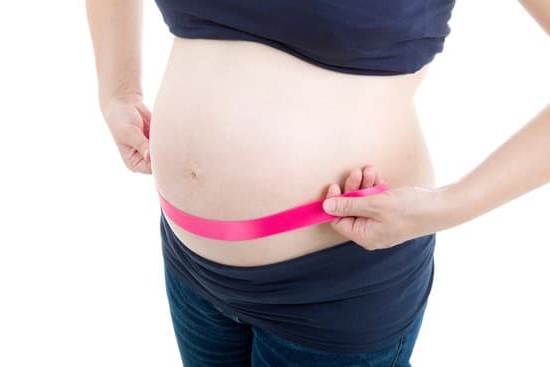Experiencing a miscarriage can be a heartbreaking and emotionally challenging event for any woman. One common question that arises is, “how long after miscarriage will pregnancy test be negative?” Understanding the process of a miscarriage is crucial in addressing this concern. A miscarriage, also known as a spontaneous abortion, is the loss of a pregnancy before the 20th week. It can occur due to various factors such as genetic abnormalities, hormonal imbalances, or maternal health issues.
The effects of a miscarriage go beyond just physical aspects and can deeply impact a woman’s body and emotions. Not only does the body undergo physiological changes during this time, but the emotional toll can be significant. Dealing with grief, guilt, and feelings of loss are all common experiences for women who have gone through a miscarriage.
Taking a pregnancy test after a miscarriage is important for several reasons. It helps confirm if the miscarriage was complete and informs future fertility plans.
Factors such as how far along the pregnancy was at the time of the loss and individual variations in hormone levels can affect how long it takes for a pregnancy test to be negative after a miscarriage. Typically, hormone levels decrease gradually after a miscarriage, and it may take some time for them to reach undetectable levels on a pregnancy test.
Knowing the typical timeline for when a pregnancy test will be negative after a miscarriage can provide some clarity and assurance during this difficult time.
Effects of a Miscarriage on a Woman’s Body and Emotions
After experiencing a miscarriage, both the physical and emotional impact on a woman’s body can be significant. Physically, a miscarriage can lead to symptoms such as cramping, bleeding, and passing of tissue. These experiences can vary depending on how far along the pregnancy was at the time of the loss. In addition, hormonal changes that occur during and after a miscarriage can result in breast tenderness, fatigue, and mood swings.
Emotionally, a miscarriage can have lasting effects on a woman’s mental well-being. It is common for women to feel a range of emotions including sadness, grief, guilt, and even anger. The sense of loss and disappointment from the failed pregnancy can be overwhelming.
Some women may also experience anxiety about trying to conceive again in the future. It is important for women who have gone through a miscarriage to allow themselves to grieve and seek support from loved ones or mental health professionals if needed.
Taking a pregnancy test after a miscarriage is crucial for monitoring hormone levels and ensuring that there are no complications remaining from the pregnancy loss. It is recommended to wait at least 3 weeks after a miscarriage before taking a pregnancy test as hCG (human chorionic gonadotropin) levels need time to drop back to normal.
Additionally, it is essential to follow up with healthcare providers for any necessary tests or examinations to ensure that the body is healing properly after a miscarriage.
| Theme | Statistics |
|---|---|
| Physical Symptoms After Miscarriage | Cramping, bleeding, passing tissue |
| Common Emotions Post-Miscarriage | Sadness, grief, guilt, anger |
| Recommended Time Before Pregnancy Test | At least 3 weeks post-miscarriage |
Why It Is Important to Take a Pregnancy Test After a Miscarriage
After experiencing a miscarriage, it is crucial for women to take a pregnancy test to confirm that the pregnancy has ended. Even though the physical symptoms of a miscarriage may have subsided, there could still be residual hCG (human chorionic gonadotropin) hormone in the body, which is what pregnancy tests detect. By taking a pregnancy test following a miscarriage, it can provide closure and reassurance that the miscarriage is complete.
Here are some reasons why it is important to take a pregnancy test after a miscarriage:
- Confirmation of Pregnancy Loss: Taking a pregnancy test can help confirm that the pregnancy has ended and allows women to begin the grieving process.
- Monitoring hCG Levels: Pregnancy tests detect hCG levels in urine or blood, which can indicate whether any remaining tissue from the pregnancy needs medical intervention.
- Planning for Future Pregnancies: Knowing when the body returns to its non-pregnant state helps in planning for future pregnancies and understanding what to expect.
It is essential to remember that taking a pregnancy test after a miscarriage does not only serve as a means of confirming the end of the pregnancy but also serves as an important step in evaluating one’s physical health post-miscarriage. While emotional healing is vital during this time, understanding one’s physical well-being is equally important in ensuring proper recovery.
To properly understand how long after miscarrying will a pregnancy test be negative, several factors must be taken into consideration. These factors can contribute to varying timelines for when hCG levels return to normal post-miscarriage:
- Gestational Age: The length of the pregnancy at the time of miscarriage can impact how long it takes for hCG levels to decrease.
- Method of Miscarriage: Whether the miscarriage occurred naturally or was induced medically can affect hCG levels differently.
- Individual Body Response: Each woman’s body reacts differently to hormonal changes; therefore, it may take longer for some women than others for their pregnancy test to be negative.
Factors That Can Affect How Long It Takes for a Pregnancy Test to Be Negative After a Miscarriage
After experiencing a miscarriage, many women are left wondering how long it will take for a pregnancy test to show a negative result. Various factors can influence the length of time it takes for the pregnancy hormone hCG to leave the body completely.
One key factor is how far along the pregnancy was at the time of the miscarriage. If the miscarriage occurred in the early stages of pregnancy, it may take less time for hCG levels to drop compared to a later-stage miscarriage.
Another factor that can impact how long it takes for a pregnancy test to be negative after a miscarriage is whether any tissue remains in the uterus. In some cases, after a miscarriage, not all of the pregnancy tissue is expelled from the body naturally and may require medical intervention. This retained tissue can continue to produce hCG, leading to persistently positive pregnancy test results.
Additionally, individual differences in metabolism and hormonal levels can play a role in determining how quickly hCG is cleared from the body after a miscarriage. Some women may see negative pregnancy test results within a few weeks, while others may take longer. It is essential to remember that every woman’s body is unique, and there is no one-size-fits-all timeline for when hCG levels will return to normal after a miscarriage.
Overall, it is crucial for women who have experienced a miscarriage to monitor their hCG levels through pregnancy tests as advised by their healthcare provider. If persistent positive results are causing distress or uncertainty, it is recommended to seek guidance from a medical professional. Understanding these factors that can influence how long it takes for a pregnancy test to be negative after a miscarriage can help women navigate this challenging period with more awareness and knowledge.
Typical Timeline for When a Pregnancy Test Will Be Negative After a Miscarriage
Experiencing a miscarriage can be a devastating event for many women, both physically and emotionally. One common question that may arise is, “How long after a miscarriage will a pregnancy test be negative?” Understanding the typical timeline for when a pregnancy test will show as negative after a miscarriage can provide some clarity during this difficult time.
Factors Affecting the Timing
There are several factors that can influence how long it takes for a pregnancy test to be negative after a miscarriage. The gestational age at the time of the miscarriage, whether it was a natural or medical miscarriage, and individual differences in hormone levels all play a role.
Additionally, if any products of conception remain in the uterus following the miscarriage, it may take longer for the pregnancy hormone (hCG) levels to decrease and for the test to show as negative.
Typical Timeline
In general, it is normal for hCG levels to drop rapidly following a miscarriage. Most women will start to see their pregnancy tests turn negative within a few weeks after the loss. However, in some cases, it may take up to 4-6 weeks for hCG levels to return to zero and for the pregnancy test to be consistently negative.
It is important to keep in mind that every woman’s body is different, so the timeline may vary from person to person. If you have concerns about the timing of your pregnancy test results after a miscarriage, speaking with your healthcare provider can provide reassurance and guidance.
How to Properly Take a Pregnancy Test After a Miscarriage to Ensure Accurate Results
After experiencing a miscarriage, it is essential to take a pregnancy test to monitor the levels of hCG (human chorionic gonadotropin) in your body. This hormone is produced during pregnancy and is what pregnancy tests detect to give you a positive result. However, it is equally crucial to ensure that you are taking the pregnancy test correctly to obtain accurate results. Here are some steps on how to properly take a pregnancy test after a miscarriage:
- Follow the instructions: Read the manufacturer’s directions carefully before taking the test. Make sure to use the test at the recommended time of day and follow all guidelines for accurate results.
- Use fresh urine: For the most reliable results, use your first-morning urine for the test. This is because it is more concentrated and will have higher levels of hCG if you are pregnant.
- Check the expiration date: Ensure that the pregnancy test has not expired before using it. Using an expired test can lead to inaccurate results.
Taking these steps can help ensure that you are getting a precise answer when testing for pregnancy after a miscarriage. It can be emotionally challenging to go through this process, so obtaining accurate results can provide clarity and help in making informed decisions moving forward.
In some cases, women may continue to have positive pregnancy tests even after a miscarriage due to remaining levels of hCG in their system. If you are unsure about your test results or if your tests continue showing positive long after a miscarriage, it may be necessary to consult with your healthcare provider for further evaluation and guidance on next steps.
Coping Strategies for Dealing With the Emotional Aftermath of a Miscarriage
Experiencing a miscarriage can be an emotionally devastating event for women and their partners. Coping with the loss of a pregnancy involves navigating a range of complex emotions, including grief, guilt, and sometimes even anger. It is essential for individuals to recognize and address these feelings in order to heal and move forward.
Seeking Support
One of the most important coping strategies after a miscarriage is seeking support from loved ones, friends, or a counselor. Talking about your emotions and processing your grief with someone who understands can help you feel less alone in your experience. Joining support groups or online forums specifically for individuals who have experienced pregnancy loss can also provide comfort and understanding.
Allow Yourself to Grieve
It is crucial to allow yourself to grieve the loss of your pregnancy in whatever way feels right for you. Some individuals may find solace in rituals or ceremonies to honor their baby’s memory, while others may prefer private moments of reflection. Remember that everyone grieves differently, and there is no right or wrong way to mourn the loss of a pregnancy.
Engage in Self-Care
Taking care of yourself physically and emotionally is vital during this challenging time. Engage in activities that bring you comfort and relaxation, such as exercise, meditation, or hobbies you enjoy. Prioritize self-care practices that nourish your mind, body, and soul as you navigate the emotional aftermath of a miscarriage.
When to Consult a Healthcare Professional if a Pregnancy Test Is Still Positive After a Miscarriage
Experiencing a miscarriage is a devastating event for any woman, and the aftermath can be filled with uncertainty and confusion. One common concern that many women have is how long after a miscarriage will a pregnancy test be negative. It is crucial to understand that the timeline for when a pregnancy test will show as negative after a miscarriage can vary from woman to woman, depending on various factors.
Factors such as how far along the pregnancy was, the levels of hCG (human chorionic gonadotropin) hormone in the body, and individual differences in how quickly the body processes hormones can all impact how long it takes for a pregnancy test to be negative after a miscarriage. Generally, it can take anywhere from a few days to several weeks for hCG levels to drop low enough for a pregnancy test to show as negative.
It is important to follow up with healthcare professionals if you are concerned about your lingering positive pregnancy test after a miscarriage. They can provide guidance on next steps, perform additional tests if necessary, and offer support during this difficult time. Remember to take care of yourself both physically and emotionally as you navigate through the aftermath of a miscarriage.
Frequently Asked Questions
How Long Will the Pregnancy Test Show Positive After Miscarriage?
After a miscarriage, it is possible for a pregnancy test to continue showing positive results for up to several weeks. This is because hCG levels in the body may take time to fully decrease following the loss of pregnancy.
How Long Does It Take for hCG to Go Down After Miscarriage?
The time it takes for hCG levels to decline after a miscarriage can vary from woman to woman. In general, it can take anywhere from a few days to several weeks for hCG levels to return to zero after experiencing a pregnancy loss.
Can You Take a Pregnancy Test to See if You Miscarried?
While some women may choose to use a pregnancy test to see if they have miscarried, it is important to note that this method may not always provide accurate results. It is best to consult with a healthcare provider if there are concerns about a possible miscarriage, as they can conduct appropriate testing and examinations for confirmation.

Welcome to my fertility blog. This is a space where I will be sharing my experiences as I navigate through the world of fertility treatments, as well as provide information and resources about fertility and pregnancy.





